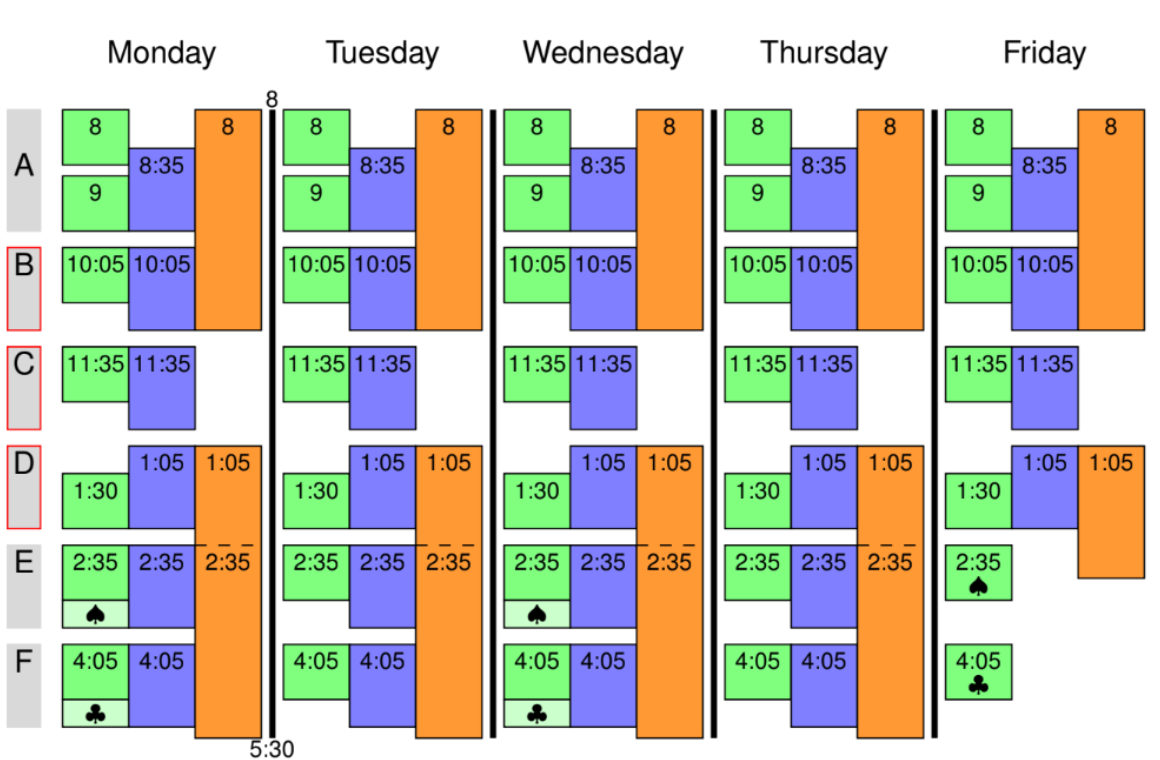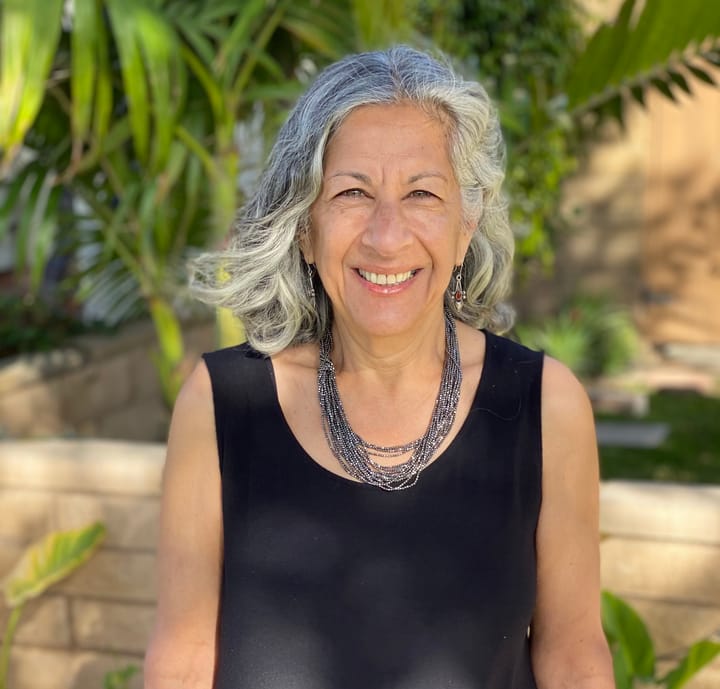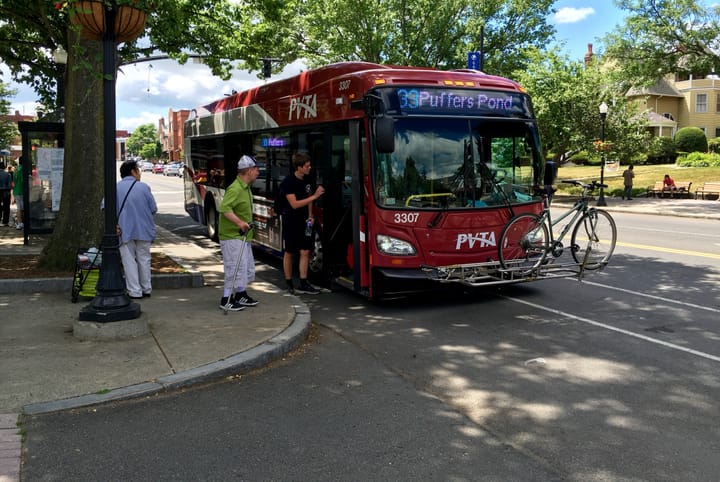Faculty Votes to Alter Course Schedule
On Friday, Amherst faculty approved a new course schedule that will include shorter courses and more available class times throughout the day. The changes aim to make better use of available classrooms while making certain courses more accessible to students.

On Friday, Amherst faculty voted 136-31 to make substantial changes to the course schedule. The new schedule will expand the available class times to 8 a.m. through 5:30 p.m., create more biweekly course times on Mondays, Wednesdays, and Fridays, and shorten classes from 80 to 75 minutes to establish 15-minute passing times. The policy also calls on departments to ensure that a portion of their course offerings include times outside of “peak hours” from 10 a.m. to 2:30 p.m. The changes will go into effect for the fall 2025 semester.
The policy was formulated by the Ad-hoc Faculty Committee on Student Learning together with the Committee on Educational Policy (CEP), the latter of which is formed by faculty as well as student representatives from the AAS. The new schedule aims to spread more courses outside of peak hours, better use limited classroom space, and generally make the open curriculum “more accessible” to students. The new schedule was also designed to ensure professors could attend Friday afternoon faculty meetings.
Paula R. and David J. Avenius 1941 Professor of Physics David Hall, a member of the Ad-Hoc Committee who presented the proposal, enumerated several changes that would “de-densify” courses.
For example, in the current schedule, there are often two 50-minute course times that overlap with one course that meets for 80 minutes. Under the new schedule, there would only be one 50-minute course that overlaps with the 80-minute class.
In addition, the policy asks departments to schedule 20% of full-course offerings outside of “peak” times, 10 a.m. to 1:30 p.m. More biweekly courses will be offered on Mondays, Wednesdays, and Fridays, further spreading out courses.
At the meeting, Poler Family Professor of Psychology Catherine Sanderson spoke in support of this “de-densification.” She said that in her experience advising students, advisees often see many classes they’d like to take scheduled at the same time.
Hall noted that it would be up to departments to enforce this policy, which recommends new language for department handbooks. “This is a self-policing thing,” he said. “So we need to agree to these guidelines … That means taking it seriously. If you don’t want to take this seriously … don’t vote for this. Because [otherwise] this will wreak havoc.”
Courses will also now be offered from 8 a.m. to 5:30 p.m. Previously, courses were not scheduled after 4 p.m. to avoid conflict with athletic commitments. Hall emphasized that blocks after 4 p.m. should be used for duplicate section meetings or non-major requirements.
Another notable change is class lengths, shortened from 80 to 75 minutes. The five minutes taken from class time will provide a 15-minute break between classes. Currently, the break is only 10 minutes, which causes problems for students traveling from one side of campus to another.
“If you’re going from the Lyceum to the Science Center, it’s going to take you 12 minutes … and that’s not including the five minutes that your professor has run over,” Hall explained jokingly.
During the meeting, Professor of History Ellen Boucher spoke in support of the longer passing time: “I think the 15 minutes between classes is really important,” she said. “I teach in the Lyceum. It is really stressful for my students to have to get across campus in 10 minutes. It’s just not workable.”
William J. Walker Professor of Mathematics Robert Benedetto presented points that he had also sent in a letter to the faculty, in which he opposed the new policy and raised various concerns about its implementation.
Though he started by saying that he “strongly support[s] the goals of this,” he worried that faculty would not take up the charge to teach during some of the new times. Benedetto said that most faculty and students had three desires when scheduling their courses that would make the new policy ineffective: “One is a desire not to have to be there too early in the morning. One is a desire not to have to be there too late in the afternoon. And one is the desire to keep our Fridays as flexible as possible.”
Benedetto said that these desires are why courses are so clustered currently and that the new schedule fixes this issue only if “a significant portion” of faculty is willing to teach outside of peak times.
“If you’re not willing to do that, and you want to vote for this, then you’re basically asking somebody to do something that you yourself are not willing to do,” he said.
Benedetto was also concerned that the policy was being implemented too quickly. “It would not hurt to wait just one semester more, and because I think we do not have enough time … We’ve had a number of motions in the past few years [rushed through]. If it turns out [that] my fears are [well-] founded and we rush into this, it’s going to be much harder to reverse that.”
Professor of Computer Science Scott Kaplan said he would vote for the policy even if it was not “magically going to fix” all the problems with the current schedule, as he “would rather step boldly into something that we try” rather than stay with the status quo.
Some professors, such as E. Dwight Salmon Professor of History and American Studies Francis Couvares and Sanderson encouraged their colleagues to try teaching earlier in the morning.
Other professors noted that in the past, schedule shifts had been less catastrophic than faculty anticipated. “We have trouble with culture shifts on this campus,” Andrew W. Mellon Professor of Spanish Sara Brenneis said, expressing confidence that, in the end, faculty would adjust to the new schedule.
“To make the schedule and the curriculum more accessible for students … will require some change in behavior from people in this room,” Assistant Professor of Biology Marc Edwards said. “Whether people like teaching at 8 a.m. or don’t like it, we can learn to like it, just like we can tell our students to learn to like it.”
Immediately following Edwards’ comments, the faculty voted using clickers. The schedule proposal passed with overwhelming support.
It is unclear how this will impact student registration for the fall semester. In the meeting, Registrar Becky Catarelli said that the course catalog with meeting times will still be available by advising period, though “there’ll be a longer run to get everything set for next year, and I imagine there will be some mess.”
Sonia Chajet Wides contributed reporting to this article.




Comments ()